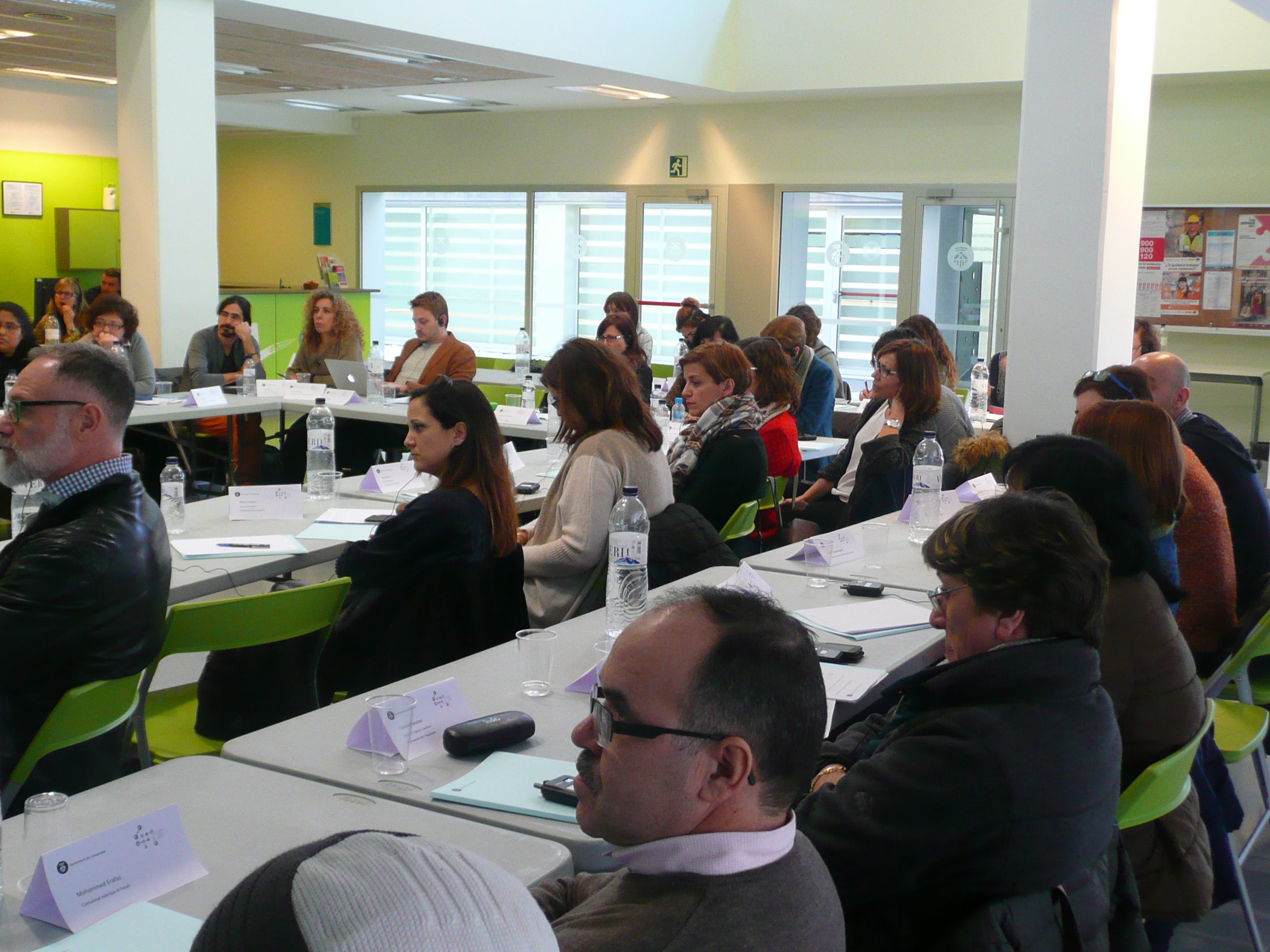More than 50 local stakeholders gathered to discuss the upcoming action plan for the prevention of violent radicalisation in the city of L’Hospitalet, in Catalonia, as part of the LIAISE 2 project.

L’Hospitalet de Llobregat, Spain, February 2017 – “The safest cities are not those that are the most repressive but rather the most socially inclusive and with the highest degree of citizen participation,” said the Director of the Department for Security, Coexistence and Citizenship of the city of L’Hospitalet de Llobregat (Catalonia), Teresa Carrasco López, as she introduced the first study day organised by the city on the local prevention of violent radicalisation, on 14 February.
“We don’t know if we have a problem in L’Hospitalet, but we nevertheless mobilise and anticipate what may happen in the future.” Oscar Negredo Carrillo, Coordinator of the Mediation Department
Organised as part of the LIAISE 2 project (Local Institutions Against Extremism)*, the seminar gathered over 50 representatives of local institutions and associations – families, schools, Muslim groups, social services, the municipal Mediation Department and the local police – as well as representatives of the Departments of the Interior and of Education of the Generalitat (devolved government) of Catalonia. The objective was to reflect on violent radicalisation and its prevention in order to establish a local, cross-cutting action plan.
Thus, through exchanges between speakers and the public, the city of L’Hospitalet formalised its political commitment for the prevention of this phenomenon. “We don’t know if we have a problem in L’Hospitalet, but we nevertheless mobilise and anticipate what may happen in the future,” said Oscar Negredo Carrillo, Coordinator of the Mediation Department. He also stressed that this initiative is both innovative and preventive.
Carola García-Calvo, researcher at the Elcano Royal Institute (Real Instituto Elcano), presented the main characteristics of the phenomenon of radicalisation in Spain, in particular the places where it most commonly appears and the important role of Internet. She also insisted on the importance of local prevention and said it is essential to gather front-line stakeholders, as was the case during the one-day seminar, because “they are the ones who pass on values and are the first level of alert when identifying possible issues of individual or collective radicalisation.”
Mohamed El Ghaidouni, President of the Union of Muslim Communities of Catalonia, gave an overview of the Muslim community in the region and insisted on the need to avoid stigma and recognize the contribution to society made by this group of population. He said that apart from the administration, other local organisations must take part, notably “local communities and associations who work with individuals at risk of being radicalised.”
Given that the Generalitat of Catalonia is to take part in this working group, a representative of the regional police, the Mossos d’Esquadra, presented the detection and prevention protocol used by police and schools in Catalonia, which is titled “Procedures for the detection of Islamist radicalisation” (Procedimientos de Detección de Radicalización Islamista, PRODERAI). He alerted participants on the usefulness of radicalisation indicators but also on their limitations when it comes to applying them. “An indicator is not meant to establish conclusive evidence about an individual. The purpose is rather to analyse a series of indicators in a given context and with a precise level of analysis, according to each individual case,” said the representative of the Mossos. He added that such detection tools are still recent and that their efficiency remains difficult to evaluate precisely. Furthermore, they should not be used by people who have not been duly trained.
“Collaboration between various levels of government was key to prevent gang violence. This type of collaboration channel must be used again to fight radicalisation.” Lluis Paradell, Generalitat of Catalonia
At the end of the seminar, participants exchanged about practical cases presented by the executive in charge of the plan for the prevention of radicalisation of the Belgian city of Moleenbeck, Oliver Vanderhaeghen. He explained the various prevention schemes put in place in the city and mentioned several real-life cases. Participants then asked questions and made comparisons with their own situation. They were particularly interested in the work carried out in Moleenbeck with the families and entourage of individuals suspected of being radicalised. They also emphasised, as had done Mohamed El Ghaidouni, the need to recognize the Muslim community and to treat it with fairness.
Several participants, including representatives of the public administration, stressed the need to mobilise existing resources for prevention and to make sure the different levels of government are well coordinated. A good example is the scheme put in place by the city of L’Hospitalet together with the Generalitat of Catalonia in the early 2000s to tackle the surge in gang violence (particularly Latino gangs). Lluis Paradell, Inspector at the Generalitat’s General Commission on Information, said that “collaboration between various levels of government was key to prevent gang violence. This type of collaboration channel must be used again to fight radicalisation.”
José Antonio García-Calvillo, Technical Advisor at the Department for Security, Coexistence and Citizenship of the municipality of L’Hospitalet, said that this meeting was “far more than a one-off training session, but rather the beginning of a long-lasting work in our city, together with Efus. We want to identify our needs regarding the prevention of violent radicalisation and decide how to act, capitalizing on our privileged position close to citizens.” Teresa Carrasco expressed similar views and concluded that “it would be cowardly to wait for problems to arise in order to act.
* LIAISE 2 is the continuation of LIAISE, which concluded in 2016 and resulted in the publication Preventing and Fighting Radicalisation at the Local Level.





